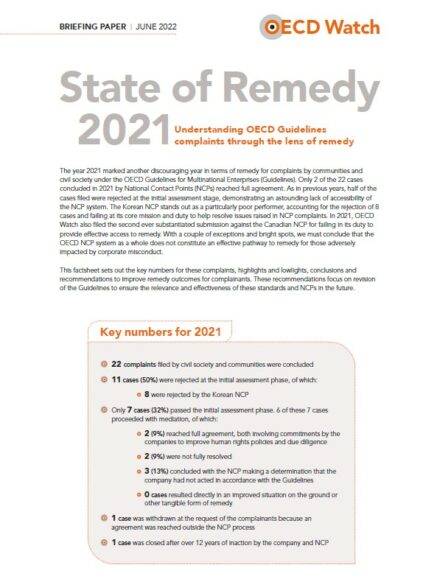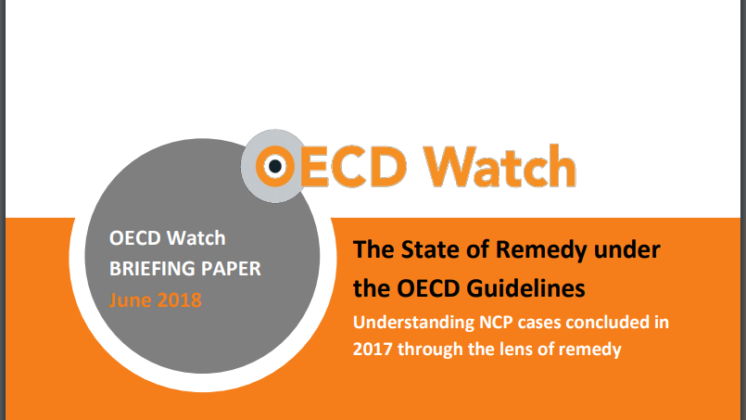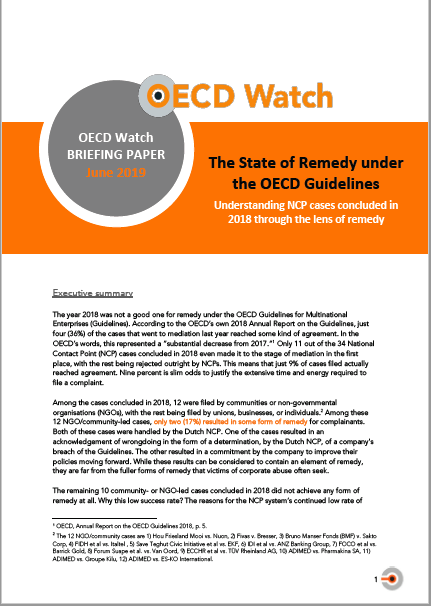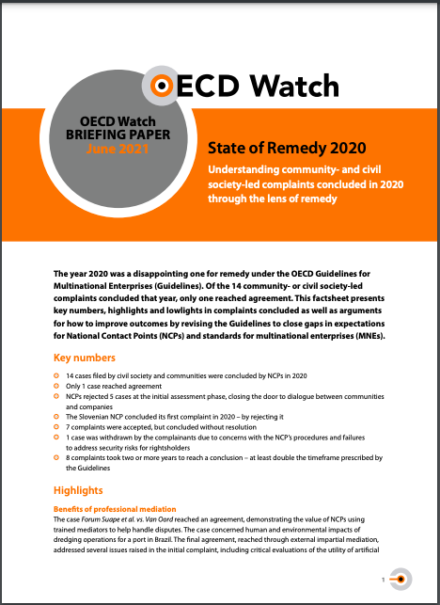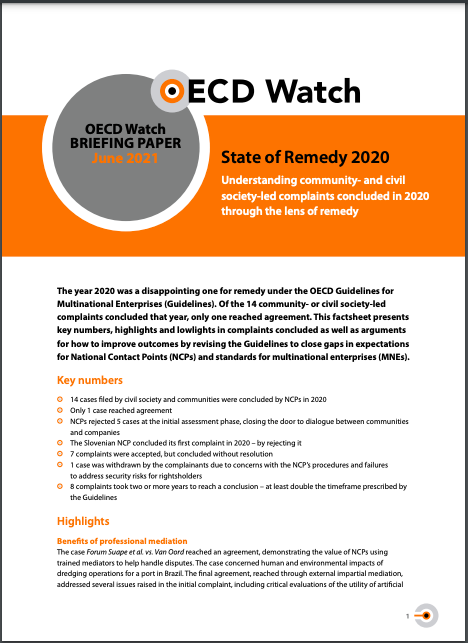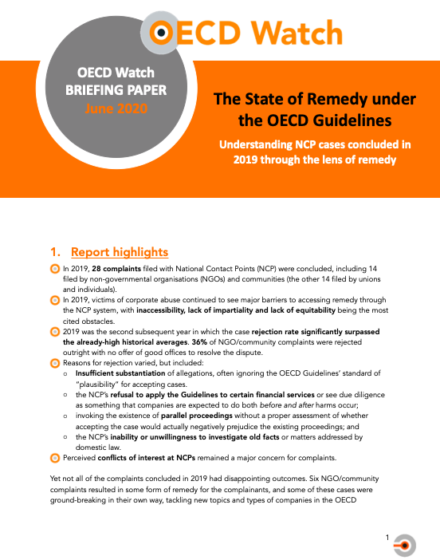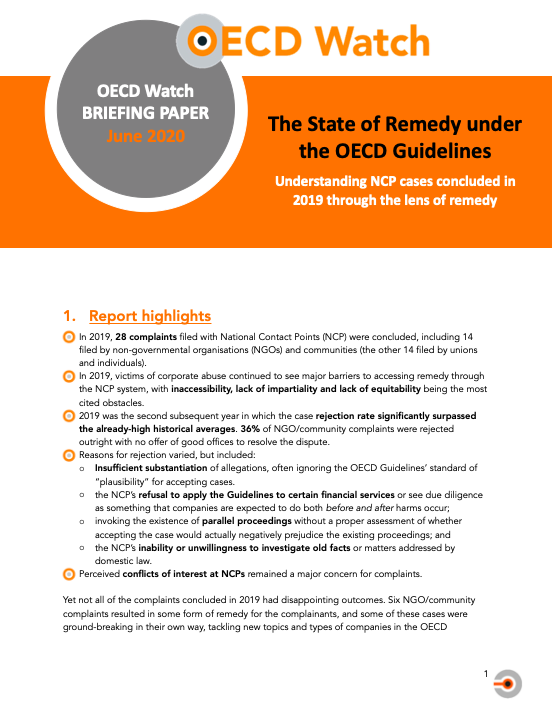Cases filed with National Contact Points for the OECD Guidelines left complainants largely empty-handed in 2021, OECD Watch concludes in its yearly state of remedy analysis. The report underscores the need for mandatory due diligence laws with effective enforcement, and it confirms that an update of the Guidelines is urgently needed if they are to remain a leading international standard on responsible business conduct.
 Photo: FoE Australia
Photo: FoE AustraliaOf the 22 community and civil society-led complaints concluded in 2021, a full one-half were rejected by an NCP at the initial assessment phase, denying complainants even a chance to address their dispute with the company. Of the six cases that actually proceeded to mediation, just two led to an agreement, both involving commitments by the companies to improve human rights policies and due diligence. In three cases, the NCP determined that the company had not acted in accordance with the OECD Guidelines. Regrettably, none of these cases directly resulted in improvements on the ground or other tangible forms of remedy for the complainants. While there were some bright spots in the performance of a few individual NCPs, the overall picture for the NCP system as a whole is bleak.
State of Remedy 2021
Inadequate guidance
The analysis confirms many of the problems – in particular the lack of accessibility and effectiveness – that OECD Watch has observed and documented year after year in NCP processes and decisions. The origin of these problems lies in the lack of political will on behalf of governments, but also in the text of the Guidelines itself, including inadequate guidance and instructions for NCPs. The result is a lack of predictability and effectiveness across the NCP system.
Recommendations to the OECD and its Member States
Today marks the start of the OECD Working Party on Responsible Business Conduct’s annual meeting. OECD Watch strongly encourages the OECD and OECD Member States to continue the stocktaking exercise with a view to updating the Guidelines. The OECD’s stocktaking report highlighted the opportunities that exist in the Guidelines for enhancing the standards for businesses as well as strengthening the NCP system. In OECD Watch’s view, the Guidelines are neither up-to-date nor complete, and the minimum expectations for NCPs are too low or vague. OECD Watch urges Working Party delegates to proceed with the update to ensure the continued relevance of the Guidelines and the effectiveness of NCPs.
In addition, OECD Watch calls on the governments of the OECD and those adhering to the OECD Guidelines, as well as the European Union, to urgently adopt legislation mandating that companies conduct due diligence to prevent and remediate adverse impacts associated with their business activity. This legislation should be based on the conceptualisation of due diligence found in the OECD Guidelines and OECD Due Diligence Guidance for Responsible Business Conduct, and it should be accompanied by an effective enforcement regime that include civil liability for harm. Such legislation would increase the effectiveness of NCPs by allowing them to focus on cases that are amenable to the non-judicial tools NCPs have at their disposal for dispute resolution.

